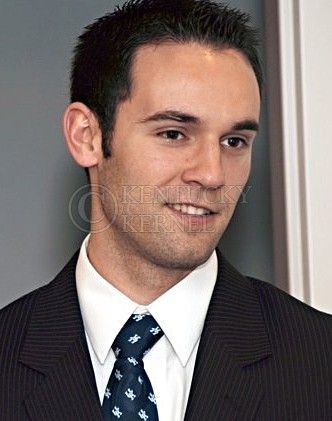Kentucky bucks trend, keeps gay marriage ban

November 18, 2014
Earlier this month, the U.S. Court of Appeals for the Sixth Circuit made the decision to uphold gay marriage within its jurisdiction, which includes Kentucky.
This decision went against the trend of about two dozen court decisions in favor of marriage equality since the Supreme Court struck down the Defense of Marriage Act.
This has become a big deal to marriage activists — both traditional and same sex — because it creates disagreement at the appellate level of federal court.
When lower courts differ on a subject, it is often the protocol for the Supreme Court to hear the case in order to create consistency in the law.
Just a few weeks ago, the Supreme Court declined to hear gay marriage cases, making them legal by default in all of the states that had appealed lower court decisions for marriage equality.
It is widely assumed now that because of the Sixth Circuit’s decision the Supreme Court will now have to take up the case, though it will not be a slam dunk.
The rules of operation for the Supreme Court require a minimum of four justices move to hear a case before it can be granted certiorari.
The Supreme Court is not supposed to be political, but the reality is we can infer how eight of the Justices will likely respond.
Because of Justice Kennedy’s unpredictability there have not been four Justices who moved to hear a case on gay marriage, and there still may not be despite the Sixth Circuit’s decision.
Despite the fact that four justices are presumably on each side of the decision, they did not move to hear it previously and may not move to hear it now because they simply do not know where Justice Kennedy will land on the case.
Neither group of four wants to move to hear the case with the big question mark in the middle because they want the case to be won by their side. Look at the situation in terms of geography.
The “problem,” if you will, of gay marriage at the moment is isolated to 30 states for the conservative group of four.
Should they choose to hear the case and Kennedy sides against them the “problem” becomes nationwide.
30 states is still a majority, but in the eyes of gay marriage opponents it is significant that 40 percent of states still ban gay marriage and, according to the courts, have legal authority to do so.
A Supreme Court decision in favor of marriage equality would eliminate that 40 percent.
For the liberal group of justices, the “problem” is limited to just 20 states, but if Justice Kennedy were to side against them, the progress made in the courts in recent years would all be wiped out and gay marriage would then be illegal in states that have banned it but lost their cases in court.
This would roll back gay marriage privileges in about a dozen states. Neither side is wiling to take the risk because gay marriage forces Justice Kennedy to choose between two of his favorite legal subjects: LGBT protection and states’ rights.
Justice Kennedy has always been very willing to expand the legal standing of the LGBT community. Perhaps the only legal subject he cares about equally is granting each state the authority to govern itself and make its own decisions.
With gay marriage, the two subjects smash in a head-on collision. The Sixth Circuit’s decision makes it more likely the Supreme Court will hear a gay marriage case, but because of Justice Kennedy it is far from a sure bet.






















































































































































